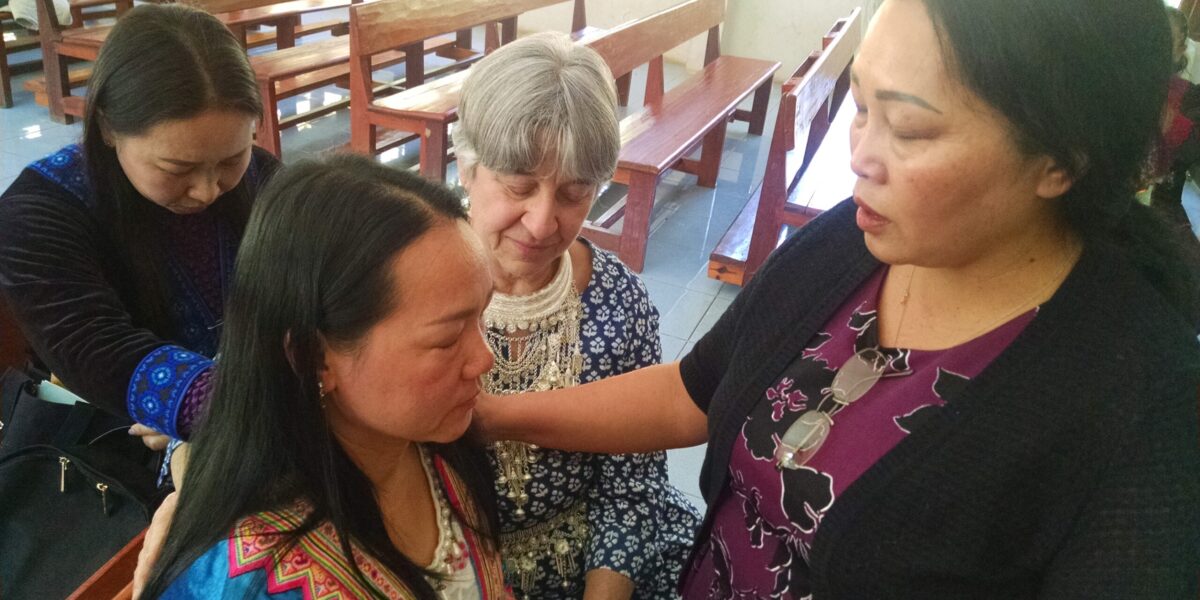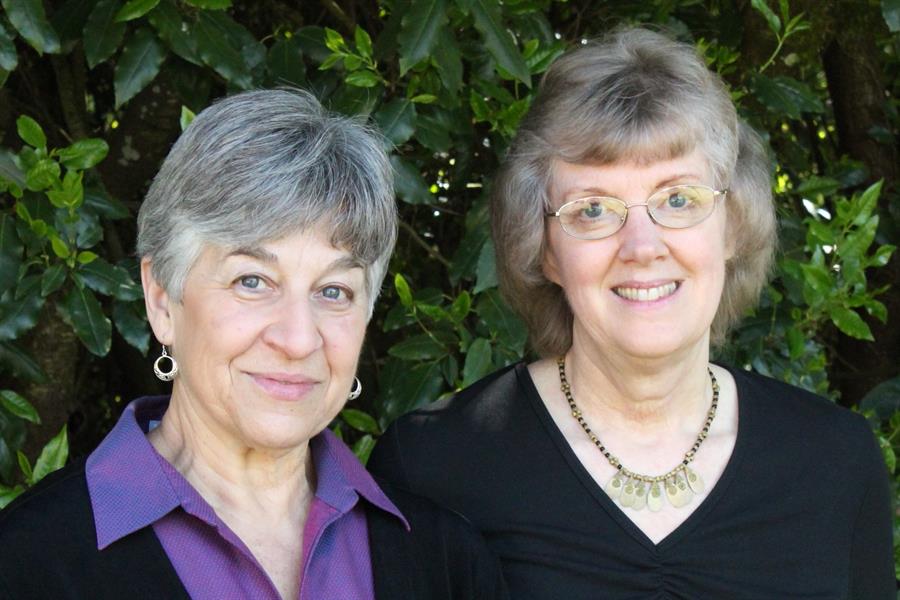We first met Memee Yang in 2012 when she phoned with a request
that sounded like a biblical Macedonian call. As president of the U.S. Hmong
Mennonite Church of Mission women’s organization, she asked for the Sister Care
leadership training seminar to be shared with Hmong women in Thailand. Eight
years later in 2020, Carolyn Heggen, psychotherapist specializing in trauma
healing, and Rhoda Keener, Sister Care director for Mennonite Women USA,
accompanied Memee to the Khung Klang Mennonite Church, an hour’s drive from
Chiang Mai.
As they taught the Sister Care seminar, Memee interpreted
into Hmong for 55 women from 17 churches. Her vision became a reality.
The Sister Care manual was translated into Thai and Hmong by
Ponchai Banchasawan, president of the Hmong District 20 church conference. This
conference of 26 Hmong churches gained official membership in Mennonite World
Conference in 2018 partnering with Mennonite Mission Network for church
planting and theological training in the region.
Mike Sherrill, Asia director for Mission Network, facilitated
introductions and communication with Hmong leaders for Sister Care. Funding for
the event was provided by United Service Foundation, Central Plains Mennonite
Conference, Emmanuel Mennonite Church, and individuals; MCC funded onsite costs
for food and lodging. Thailand is the 20th country where Mennonite
Women USA has shared Sister Care. The manual has been translated into 18
languages.
Memee’s passion to provide healing
and resources for Hmong women in Asia grew from her childhood as a refugee in
Thailand. Because her family had helped American soldiers during the
Vietnam War, they, like thousands of other Hmong, needed to flee local
retaliation after the war. She remembers her four younger siblings who died because
of that flight; they were given opioids so they wouldn’t cry as they escaped
through the jungle, but then when they woke, could not eat because of the
effect of the opioids. Memee’s family came to the United States as immigrant
refugees when she was 8 years old. She is married to Jonah Yang, a Mennonite
pastor, and they have seven children. Both have studied at Anabaptist Mennonite
Biblical Seminary.
When asked about challenges or
problems of Hmong women in their churches and communities, seminar participants
said, “Hmong women are very low in our culture and we have no voice,” and, “Hmong
women are not given permission to share problems with other women or to teach.”
After writing or illustrating with drawings their personal life
stories on a timeline, women shared with a small group what this process was
like for them. Responses included, “It’s a blessing to share our pain with each
other; it makes us laugh and smile,” and “While we are talking about many sad
things, we cry with happiness to be able to talk together.”
It was significant for the women that
the seminar was for women only. One
woman said, “I want you to know this is the first time for our Hmong women that
we have had a teaching just for women.”

Areerat Banchasawan (above) echoed this theme in a devotional
she led on the last morning of the seminar, saying, “When women get together
and talk, it’s like a sweet candy we get to eat.” Later she added, “Until I
read the Sister Care manual, which my husband translated, I had never thought
of the idea of God with skin on. That is what we are to each other.”
The Hmong people are a persecuted, minority ethnic group.
They first lived in southern China and were pushed across the southeast Asian
peninsula. Parents arrange for Hmong girls to be married between the ages of 12
and 14. After marriage they move to their husband’s family home and carry heavy
workloads. This cultural practice brings many challenges and limits girls’
opportunities for education.
Memee says, “I grew up in a traditional Hmong family where I
was taught that as a Hmong girl, when I got married, I belonged to my husband’s
family and not my own. It is so important to me that Sister Care is shared with
the Hmong women because the Hmong woman feels so low and Sister Care brings
healing.”
She added, “Sister Care gives the Hmong women the
opportunity to share their deep feelings and pain with each other. It helps
women to understand that each woman needs a faithful and trusted friend to be
God with skin on for her. And Sister Care provides an educational resource to help
women understand that they are important to God and created equal with men in
God’s eyes, and to know that God has called women to serve in the same way as
men.”
In November 2020, Memee, Carolyn and Rhoda will return to southeast
Asia to share the Sister Care seminar with other groups of Hmong women.









